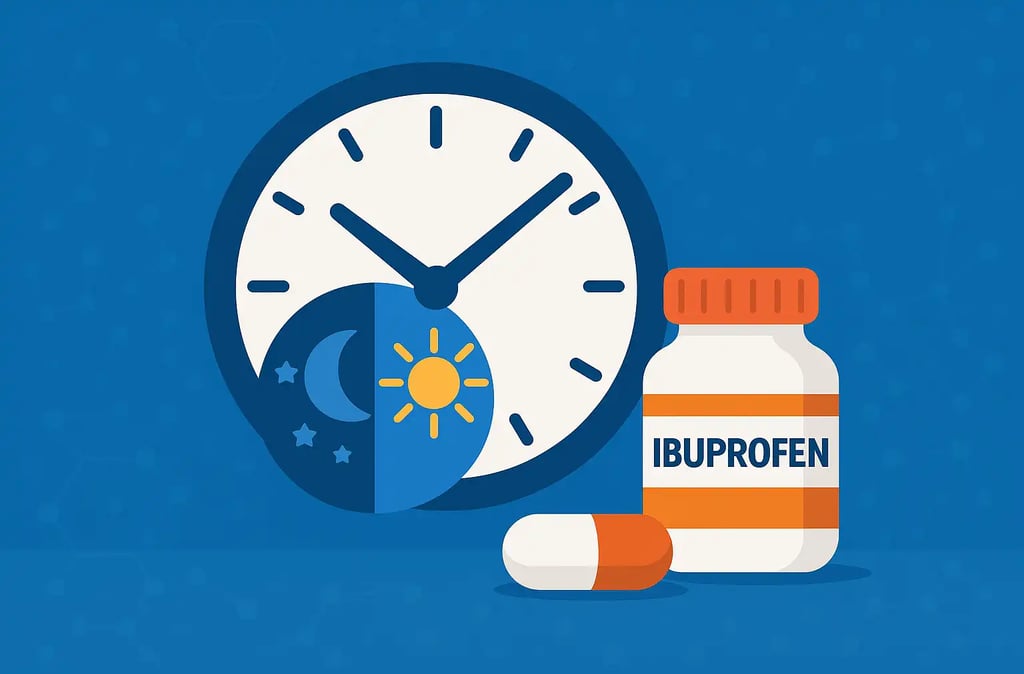Is It Safe to Take Ibuprofen Every Night?
Occasional ibuprofen at night is safe, but nightly long-term use can harm the stomach, kidneys, or blood pressure. Learn risks and safer alternatives.


Is It Safe to Take Ibuprofen Every Night?
Ibuprofen is effective for pain, inflammation, and fever, but many people wonder if it’s safe to take it nightly. The short answer is:
Regular daily use of ibuprofen, including every night, is not considered safe without medical supervision.
While occasional nighttime use to relieve pain or help with discomfort is generally fine, taking ibuprofen every night can increase risks. Long-term or frequent use increases the chance of side effects such as stomach irritation, ulcers, gastrointestinal bleeding, kidney problems, and higher blood pressure. These risks are even greater for older adults or people with chronic health conditions.
If you find yourself relying on ibuprofen every night, it may be a sign of a serious underlying issue — such as arthritis, chronic pain, or another medical condition — that requires attention. Safer long-term solutions may be available, and your doctor can help determine the best approach.
FAQ
Is it safe to take ibuprofen daily?
No, regular daily use is not recommended unless prescribed by a doctor. Occasional use is generally safe, but long-term use raises health risks.
What are the risks of taking ibuprofen every night?
Nightly use can lead to stomach ulcers, gastrointestinal bleeding, kidney problems, or higher blood pressure over time.
Can ibuprofen be used short-term at night?
Yes. Using it occasionally at bedtime for temporary pain or fever is usually safe for most healthy adults.
Are there safer alternatives for nightly pain relief?
Depending on your condition, options like acetaminophen, physical therapy, or other treatments may be better than ibuprofen for long-term management. Always check with your doctor.
What should I do if I need ibuprofen every night?
If you depend on nightly ibuprofen, consult a healthcare provider. It may signal a condition that requires medical evaluation and more appropriate treatment.
Disclaimer
This page summarizes information from trusted medical sources and is provided for general knowledge only. lt is not medical advice; Always consult your doctor or pharmacist for personal medical guidance (For a more comprehensive explanation please see the full disclaimer).
Resources
The information above has been gathered from several reputable sources, including the following:


